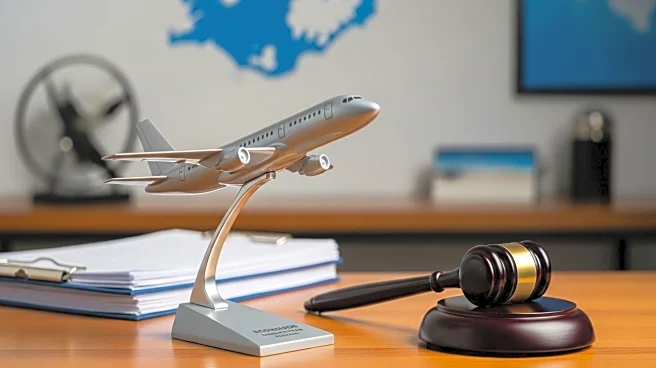What is the story about?
What's Happening?
The Icelandic government has implemented stricter regulations for the deregistration of aircraft in response to the recent bankruptcy of the low-cost airline PLAY. Infrastructure Minister Eyjólfur Ármannsson signed the new regulation, which mandates that all airport-related fees must be paid in full before an aircraft can be removed from the national registry. This rule applies to both future cases and aircraft currently undergoing deregistration. Operators are now required to provide proof that all outstanding charges, including airport and air traffic control fees, have been settled. The regulation also grants airport authorities the power to ground planes until payments are made. The decision follows PLAY's announcement of ceasing operations, with only one of its six aircraft remaining in Iceland at the time. The other planes were flown out earlier, with four landing in Toulouse amid discussions to transfer lease agreements to PLAY's Malta-based subsidiary.
Why It's Important?
The new regulations are significant as they aim to prevent financial losses for Iceland's airport and air navigation provider, Isavia, which has faced challenges in recovering unpaid fees from bankrupt airlines. The move is reminiscent of the 2019 collapse of WOW Air, which led to prolonged legal battles over unpaid fees. By tightening deregistration rules, the Icelandic government seeks to ensure that financial obligations are met before aircraft can leave the country, potentially reducing the risk of financial losses for airport authorities. This could have broader implications for the aviation industry in Iceland, encouraging more responsible financial practices among airlines operating in the region.
What's Next?
The new regulations may compel aircraft owners to resolve outstanding debts owed to Isavia, potentially leading to negotiations or legal actions to recover unpaid fees. The situation could also influence other countries to adopt similar measures to protect their aviation sectors from financial losses due to airline bankruptcies. Stakeholders, including airlines and airport authorities, will likely monitor the impact of these regulations on the industry and consider adjustments to their financial and operational strategies.
Beyond the Headlines
The introduction of stricter deregistration rules highlights the challenges faced by small countries in managing the financial risks associated with airline bankruptcies. It underscores the need for robust regulatory frameworks to protect national interests and ensure the sustainability of the aviation sector. The move may also prompt discussions on the ethical responsibilities of airlines in maintaining financial solvency and fulfilling their obligations to service providers.

















